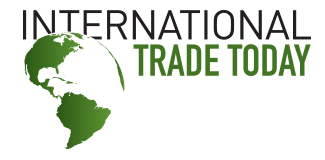WTO Members Extend E-Commerce Moratorium at MC13
World Trade Organization members at the body's 13th Ministerial Conference decided to extend the moratorium on e-commerce duties until MC14 or March 31, 2026, whichever comes first, the WTO announced at the conclusion of the ministerial. They also agreed to conduct "period reviews on the E-commerce Work Programme" with the goal of "presenting recommendations for action to the Ministerial Conference."
WTO members also adopted a decision to extend the moratorium on "non-violation and situation complaints regarding the Agreement on Trade-related Aspects of Intellectual Property Rights" until MC14, the WTO said.
As expected (see 2402070062), MC13 didn't result in concrete reforms to the WTO's dispute settlement system. The ministerial declaration released after the conference instead recognized "progress made with the view to having a fully and well-functioning dispute settlement system accessible to all members by 2024."
A ministerial decision adopted at MC13 instructed negotiators to "accelerate discussions in an inclusive and transparent manner, build on the progress already made, and work on unresolved issues, including issues regarding appeal/review and accessibility to achieve the objective by 2024 as we set forth at MC12."
Other negotiating mandates passed at MC13 include a decision to "review special and differential treatment" provisions for developing and least-developed nations with the goal of making them more "precise, effective and operational," the WTO said.
As for fisheries talks, a total of 10 WTO members accepted the deal at MC13, putting the total number up to 71. This number sits 39 shy of the two-thirds threshold needed for full ratification. Regarding the second wave of fisheries subsidies talks, WTO Director-General Ngozi Okonjo-Iweala said "outstanding gaps" were narrowed, though "several more remain," showing that talks failed to conclude at the ministerial.
Negotiations on agriculture also continued at MC13, though a decision was not reached on public stockholding for food security purposes. In addition, no convergence was found on "timelines, expected outcomes and the scope of the flexibility to be provided to food imports by the most vulnerable countries from export restrictions."
WTO Deputy Director-General Angela Ellard said in a March 4 call with the Washington International Trade Association that, in contrast with MC12, negotiators were working off a common text and submitting textual suggestions. "That is a very good beginning here" and hopefully members "will use this text as a framework for future negotiations," Ellard said.
The deputy D-G added that the WTO is now able to move forward on the deal on domestic services regulations after two members lifted their objections to the agreement. Given that the text was agreed to in 2023, "the question is how does that text" develop since it's a plurilateral negotiation that members are seeking to put into a multilateral rulebook. Negotiations will be "pushing very hard to see if we can bring it to the next level," Ellard said.
The WTO said the domestic services regulation is meant to "facilitate services trade by streamlining and simplifying regulatory procedures. It includes the first-ever commitment in a WTO agreement to ensuring non-discrimination between men and women when they seek permits to supply services."



